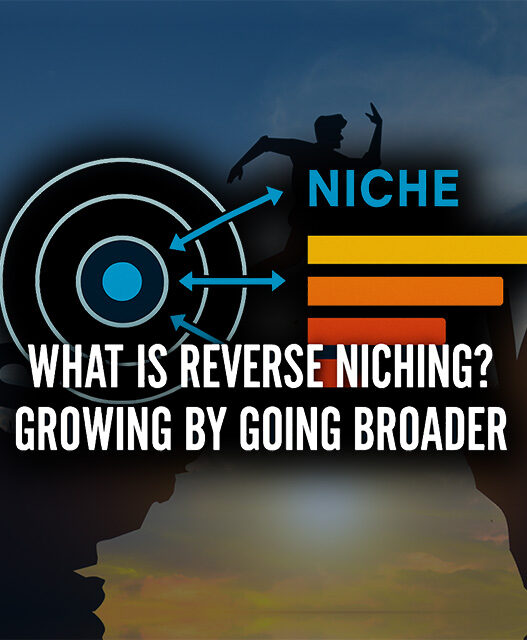The American wealth culture is nothing if not ironic. People earning six figures or more will sit across from a financial planner, sigh deeply, and mutter, “I just don't feel rich.”
Meanwhile, half the planet would look at their bank account, their square footage, and the fact that they order sushi via an app on a Tuesday night, and wonder what planet they're living on.
There's no question about whether high earners are doing well by global standards— they are. The real puzzle is why so many people who technically qualify as “rich” in statistical terms can't recognize it in their own lives.
To untangle this, let's walk through some good ol' reliable data like income thresholds and net worth benchmarks, along with the quirks of wealth perception vs reality.
Also read: Living Rich Can Keep You Poor
What Does It Mean to Be “Rich” in America?
Let's start with the global view. If you go over to Giving What We Can's “How Rich Am I” calculator and input your income, you'll see something humbling.
- An American household earning $200,000 per year lands in the global top 2% of income earners.
- Even a more modest $90,000 salary places you in the global top 10%.
That means the median American is, globally speaking, extraordinarily well-off. But comparisons rarely stop at the water's edge. In the U.S., wealth is measured against neighbors, co-workers, and, thanks to social media, carefully curated strangers.
Charles Schwab's Modern Wealth Survey captures this tension perfectly.
Respondents in 2025 said it takes $2.3 million in net worth to be considered “wealthy,” and $839,000 to be “financially comfortable.” That's the bar people set for themselves, even though the median American net worth is less than $200,000.
So if you're wondering “how much money is considered rich in America,” the answer depends on whether you're asking economists, survey respondents, or the voice in your head that keeps comparing your kitchen remodel to your neighbor's.
Income vs. Wealth: Two Sides of the Same Coin
The Wall Street Journal recently profiled Lauren Fichter and her husband in Reading, Pennsylvania.
Together they earn $350,000, own a primary home plus a vacation property they rent out on Airbnb, have three kids in club sports, and still manage to complain about feeling squeezed. The internet collectively rolled its eyes.
After all, two homes put you in a rarefied club. But the thing is…income isn't wealth. A family can clear $300,000 per year yet live paycheck-to-paycheck if debt and spending soak up all the inflows.
“When I was younger, I wouldn't even fathom making this much money,” said Fichter. However, today she feels like, “we're just the normal, run-of-the-mill, middle-class family.”
Conversely, someone making $90,000 who saves diligently over decades may quietly build a seven-figure portfolio.
Which means, income is no way to judge whether or not you're rich.
That brings us to the better yardstick: net worth.
Net Worth Benchmarks in America
According to the Federal Reserve's 2022 Survey of Consumer Finances:
- Average net worth in the U.S. sits at $1,063,700.
- Median net worth in the U.S. is around $192,000.
When broken down by income brackets, the wealth divide comes into full focus. Households at the lower end of the spectrum report a median net worth of only $24,500.
In the middle tier, that figure jumps nearly tenfold to $204,100. Climb higher, and upper-income households hold a median of $803,400. (Pew Research Center)
Even within the top slices of the distribution, the gaps widen. Families in the 80th to 89.9th income percentile earn a median of around $747,000, while the top 10% boast a median of $2.56 million and an eye-watering mean of $6.6 million.
If you're earning over $250,000 per year and saving even moderately well, you are almost certainly far above the national median and very likely flirting with that upper-income $800,000+ net worth benchmark by midlife.
Net Worth Benchmarks by Age
I'm sure you've heard the saying “age is just a number.” That is not the case when it comes to wealth. Age is the x-axis of how net worth unfolds over time.
The Federal Reserve's data (PDF) makes the progression look almost clinical in its precision. Households under 35 report a median net worth of $39,000.
By ages 35 to 44, the figure edges up to $135,600. At 45 to 54, the number nearly doubles again to $247,200. Entering the 55 to 64 window, it climbs to $364,300. Even in the so-called peak years of 65 to 74, the median tops out at $409,900.
On paper, this ladder of compounding makes sense. We start small, build steadily, and let time do its work. But when you overlay income, the outlook turns more complicated.
Take a 47-year-old physician, for instance, pulling in $300,000 a year. Standard saving rates and long-term market returns suggest their “expected” balance sheet should already be cresting $2 million. Yet survey after survey, along with candid forum posts, reveal that many in this exact demographic say they feel like they're lagging.
That dissonance between what the math says should be happening and what people feel when they check their accounts is where much of the unease among high earners originates. It isn't only a numbers game; it's a psychological one. Falling short of the statistical “should” doesn't evoke an “oh well ¯\_(ツ)_/¯ “.
For many, it can feel like a personal failing, even when the household in question is far ahead of national medians.
“Life's really expensive in 2025, and budgets are really tight for so many American households. That means less money to put toward wealth-building moves such as buying a home, investing in the stock market, or starting a small business,” says Matt Schulz, LendingTree's chief consumer finance analyst.
“People want to focus on building their future, but instead feel like they're treading water today, and that can be incredibly discouraging.”
Why High Earners Still Feel Poor
Several factors conspire to make affluent households feel anything but:
Low savings rates
The U.S. personal savings rate hovers near 4.5%, far short of the 20% financial planners recommend. Even high incomes can't withstand decades of under-saving.
Debt loads
Experian reports the average American household carries $105,056 in debt, with mortgages making up the lion's share, followed by Home Equity Line of Credit and student loans.
Six-figure earners are not immune, in fact, they often take on bigger mortgages and higher-end debt.
Geography
A $250,000 salary in San Francisco barely covers housing, childcare, and taxes. In Oklahoma City, it vaults you into the local elite. Wealth is relative to the cost of living.
Social comparison
Research (PDF) finds that while the median American is in the global top 10% of wealth, the U.S. ranks middle-of-the-pack in social well-being metrics. Translation: people judge wealth by lifestyle optics, not by bank statements.
The recent A State of the Nation report states: “This is really the only area where we are excelling. We have had one of the largest and fastest-growing economies in the world for more than a century — and we show no signs of letting up.”
“We're so wealthy but so unhappy,” Bradley Birzer, a historian at Hillsdale College and one of the report's authors, said. “It seems like the central question of modernity.”
The Rich-But-Broke Paradox
Consider again the family with two homes. On paper, they may be asset-rich with equity tied up in their primary residence, another chunk in a vacation property, and at least a respectable showing in retirement accounts.
But when you shift the lens from assets to day-to-day liquidity, the story changes. Club sports fees and travel tournaments eat into disposable income. Private schooling or high-end childcare pulls thousands from the budget each month.
Layer on the weight of two mortgages, rising property taxes, and how frequent travel or dining out erodes income, and suddenly the margins feel razor-thin.
It's a paradox familiar to many high earners: experience-rich, asset-rich, yet chronically cash-poor.
And that cocktail of abundance and constraint is precisely why so many surveys capture the same refrain from households well into the top deciles of income and net worth, that just don't feel wealthy.
The numbers may place them near the summit, but their lived reality tells a more complicated story.
Why Net Worth Matters More
Wealth has less to do with what you earn and far more to do with what you retain. Income is a snapshot, yet net worth is the ledger that tells the full story of your financial life.
According to Inna Rivilis, CFP, “Net worth is a key measure of financial health. It's the difference between what you own and what you owe. It reflects not just how much money you make but how well you manage, save, and invest your resources.”
That perspective shifts the conversation from fleeting paychecks to enduring stability.
The practical implications are clear. First, save consistently (ideally 15–20% of gross income), with contributions split across tax-advantaged retirement accounts and taxable investments.
Second, monitor your net worth at least quarterly. This offers a meaningful pulse on progress without succumbing to the stress of short-term market gyrations.
And third, resist the gravitational pull of lifestyle inflation. Just because your salary lands in six figures, or well beyond, doesn't mean you need two homes, three SUVs, and a summer schedule full of private club memberships.
Check out: A Net Worth Tracker That Auto-Updates Daily
The Real Wealth Audit
Americans are, by the numbers, really rich. Really, really rich. The median household income is $80,610, and the median net worth $192,900. If your income or assets are multiples of that, then yes, you are wealthy.
But wealth perception and reality will always clash. Human life has never been free of hardship, and every generation finds new ways to feel squeezed.
A century ago, indoor plumbing was a luxury. Today, people complain about the cost of college and iPhones. In a century, we'll probably grumble about the subscription fees for personal robots. It's all relative, my friends.
So, are you rich? Statistically, probably yes. Emotionally, maybe not. And financially, the answer depends less on how much you make than on how well you save, invest, and resist the gravitational pull of lifestyle creep.
The trick is to stop measuring yourself against the neighbor's car and start measuring progress against your own net worth statement. By that yardstick, many so-called “struggling” high earners are actually doing far better than they believe.
In the end, reaching Schwab's $2.3 million benchmark or cracking the Fed's top decile won't make you rich. But recognizing that if you're worrying about whether you're rich…means that you probably already are.
Are you secretly richer than you think, or does your paycheck vanish the moment it lands?
Read about why Retiring Early is NOT the Result of a Higher Income
Frequently Asked Questions
Does making six figures mean I'm rich?
Not necessarily. Income shows what flows in; net worth shows what you keep. A high salary can coexist with high debt or spending, leaving you cash-strapped.
How is net worth calculated?
Add up all assets, including savings, investments, and real estate, and subtract liabilities like mortgages, loans, and credit card debt. The difference is your net worth.
What net worth is considered wealthy in the U.S.?
Median net worth for the top 10% of households is around $2.56 million. Many Americans feel wealthy with around $2 million, though perception varies widely.
Does age affect expected net worth?
Yes. Younger households naturally start lower, and wealth compounds over time. For example, the median net worth for ages 35–44 is $135,600, while 55–64 tops $364,300.
Why do high earners often feel “poor”?
Lifestyle inflation, debt, high living costs, and social comparison all contribute. Even six-figure earners can feel cash-poor despite significant assets.
How often should I check my net worth?
Quarterly is ideal. It balances awareness of long-term progress with avoiding stress over short-term market fluctuations.
How can I grow my net worth effectively?
Save consistently (15–20% of income), invest for long-term growth, pay down high-interest debt, and resist lifestyle inflation.
Globally, what counts as rich?
A $200,000 U.S. household income puts you in the global top 2%, and even $90,000 places you in the top 10% worldwide.



















